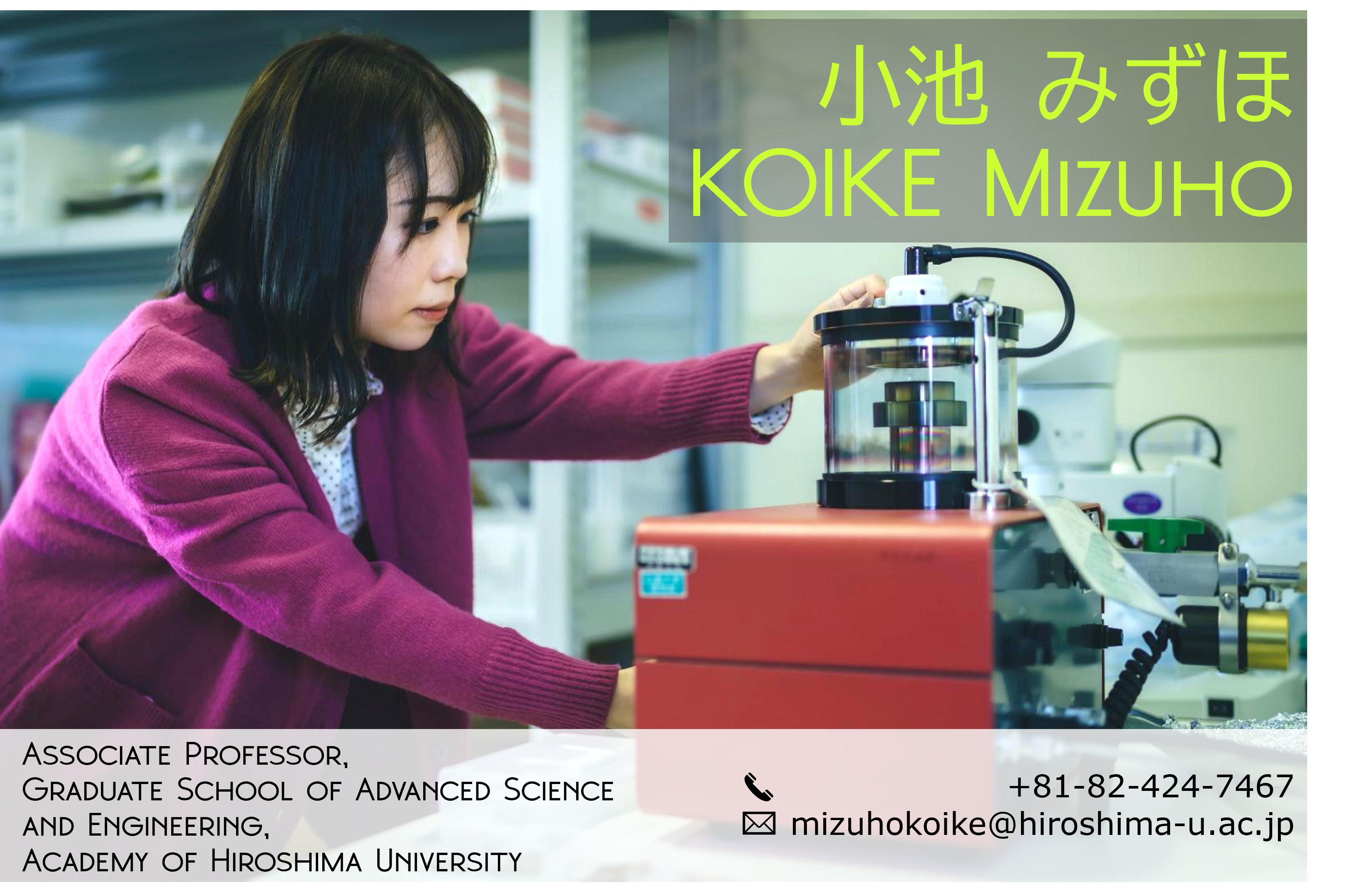
- Koike M., Sano Y., Takahata N., Iizuka T., Ono H., and Mikouchi T., "Evidence for early asteroidal collisions prior to 4.15 Ga from basaltic eucrite phosphate U–Pb chronology", Earth and Planetary Science Letters, 549, 116497 (2020). DOI
- Koike M., Nakada R., Kajitani I., Usui T., Tamenori Y., Sugahara H., and Kobayashi A., "In-situ preservation of nitrogen-bearing organics in Noachian Martian carbonates", Nature Communications, 11, 1988 (2020). DOI
- Koike M., Sugiura N., Takahata N., Ishida A., and Sano Y., "U-Pb and Hf-W dating of young zircon in mesosiderite Asuka 882023", Geophysical Research Letters, 44(3), 1251-1259 (2017). DOI
To view a more comprehensive list of publications, please click on the "researchmap" link below.
Born in Shizuoka, Dr. Koike attended the University of Tokyo, and after graduating from the Department of Earth and Planetary Science in 2012, she went on to study at the Graduate School of Science at the same university. After acquiring her doctoral degree, she worked as a researcher at the Japan Aerospace Exploration Agency (JAXA) for two years, and also undertook a short-term study trip abroad to the U.K. during that time. She has been in her current post since May 2020.
With the success of Hayabusa and Hayabusa 2, planetary science research in the future is expected to shift to “sample return”, which involves the collection of samples from space. Currently, it is said that Mars is one of the most popular planets for research. The Mars sample return is scheduled to occur in the 2030s and Dr. Koike would like to collect as much information as possible on the planet before then by investigating meteorites. Dr. Koike conducts chemical analysis as a major research method, in order to try to detect nitrogen isotopes within meteorites derived from Mars. Nitrogen is an element that is involved with the emergence of life and, if nitrogen isotopes are successfully detected, it is expected to become a means to prove the traces of life on Mars.

 Home
Home




